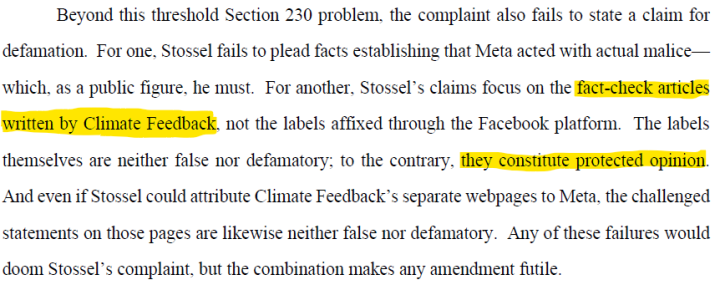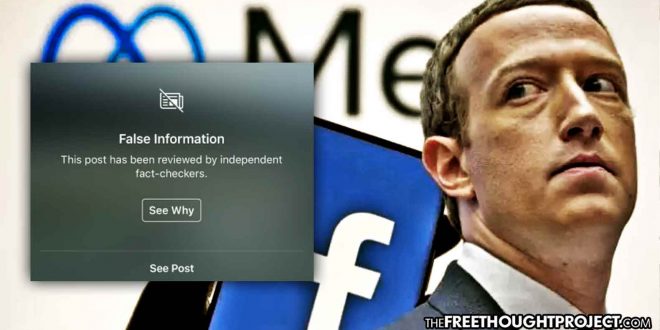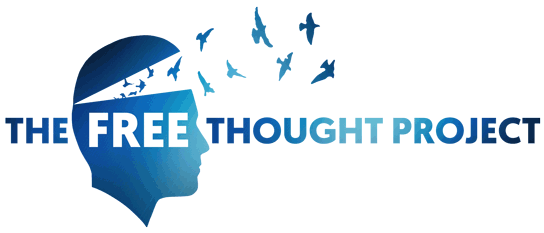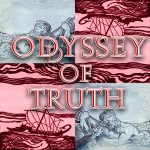Facebook explains its fact checking mechanisms
&
Facebook Quietly Admits in Court Filing that ‘Fact Checks’ Are Actually Just Opinion
The stunning admission about the nature of fact-checks was made by Meta in a court filing in a case brought against the social network by libertarian pundit John Stossel.
In a suit filed in September, Stossel claimed that Facebook and a third-party vendor defamed him, by labeling a video about wildfires he posted on his page. The label read: “Missing Context. Independent fact-checkers say this information could mislead people,” and urged readers to click a button to “see why.” The link led to an explanation debunking a claim, which Stossel said he never made in his video.
Defending its fact-checking process before a US district court in California, Meta explained that the labels used by Facebook “are neither false nor defamatory; to the contrary, they constitute protected opinion.” The same is true for the explanations that the labels link to, the filing argued.

The fact-checking industry has been booming amid increasing pressure on US-based tech giants to better police speech on their platforms, supposedly to curb political interference by malign actors and the spread of misinformation.
Facebook rules give it a pretty wide breadth of what should be fact-checked. Ironically, last year the social network made it clear that content which is “presented as opinion but is based on underlying false information – even if it’s an op-ed or editorial – [is] still eligible to be fact-checked.”
Meanwhile, even some of Meta’s own executives have reservations about the approach it has taken.
“Our ability to know what is misinformation is itself in question, and I think reasonably so,” Andrew Bosworth, who is set to become Meta’s CTO next year, said in an Axios on HBO interview.
– Come Like Us on Facebook – Check us out on Instagram –
– Sign Up for our Newsletter –



 www.rt.com
www.rt.com thefreethoughtproject.com
thefreethoughtproject.com









